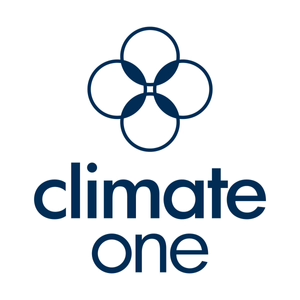
Bringing Biodiversity Back from the Breaking Point
06/02/23 • 62 min
1 Listener
Land use, pollution and the climate crisis are driving what may be the largest mass extinction event since the dinosaurs. The World Wildlife Fund estimates that the planet has seen an average 68% drop in mammal, bird, fish, reptile and amphibian populations since 1970. In order to help address species collapse, over 190 countries – signatories to the United Nations Framework Convention on Biodiversity – recently agreed to an ambitious new plan, called 30x30, which aims to conserve 30% of the world’s land and waters by 2030. Will the framework be enough to bring biodiversity back from the breaking point?
This episode is supported in part by Resources Legacy Fund.
Guests:
Tanya Sanerib, International Legal Director, Center for Biological Diversity
Ian Urbina, Director and Founder, The Outlaw Ocean Project
Jennifer Tauli Corpuz, Managing Director of Policy, Nia Tero
For show notes and related links, visit ClimateOne.org.
Learn more about your ad choices. Visit megaphone.fm/adchoices
Land use, pollution and the climate crisis are driving what may be the largest mass extinction event since the dinosaurs. The World Wildlife Fund estimates that the planet has seen an average 68% drop in mammal, bird, fish, reptile and amphibian populations since 1970. In order to help address species collapse, over 190 countries – signatories to the United Nations Framework Convention on Biodiversity – recently agreed to an ambitious new plan, called 30x30, which aims to conserve 30% of the world’s land and waters by 2030. Will the framework be enough to bring biodiversity back from the breaking point?
This episode is supported in part by Resources Legacy Fund.
Guests:
Tanya Sanerib, International Legal Director, Center for Biological Diversity
Ian Urbina, Director and Founder, The Outlaw Ocean Project
Jennifer Tauli Corpuz, Managing Director of Policy, Nia Tero
For show notes and related links, visit ClimateOne.org.
Learn more about your ad choices. Visit megaphone.fm/adchoices
Previous Episode

Naomi Oreskes, David Gelles and The Myth of Free Markets
Many on the left say that the growing climate crisis is the inevitable result of unbridled capitalism – industries seeking profits above all else. In “The Big Myth,” Naomi Oreskes (who brought us “Merchants of Doubt”) points to a concerted effort from American business groups to propagate the myth that only markets free of government regulation can generate prosperity and protect political freedom.
“If we actually had appropriate regulations, appropriate rules of the road, we wouldn't be in this position of having to beg corporate leaders not to destroy the planet,” Oreskes says.
This myth has grown so pervasive that American citizens now put more faith in CEOs than in religious leaders, according to David Gelles, author of “The Man Who Broke Capitalism.” What should be done to change the narrative?
Guests:
Naomi Oreskes, Professor of the History of Science, Harvard
David Gelles, Reporter, The New York Times
Kate Khatib, Co-Director, Seed Commons
For show notes and related links, visit https://www.climateone.org/watch-and-listen/podcasts
Learn more about your ad choices. Visit megaphone.fm/adchoices
Next Episode

Killer Heat: Confronting Disproportionate Impacts on Women and Girls
Extreme heat kills more people per year than any other climate disaster. It preys on the poor, exacerbates racial inequalities, and there is a growing body of evidence that shows women and girls are increasingly susceptible to heat-health effects. Globally, women and girls represent 80% of climate refugees. They are more likely to be displaced, suffer violence and die in natural disasters. As temperatures rise, children’s test scores decrease, gender violence increases, and miscarriage rates go up. But preventing heat deaths is possible. From Europe to Africa, Chief Heat Officers throughout the world are implementing projects to make cities more climate-adaptive.
Guests:
Kathy Baughman McLeod, Director, Adrienne Arsht-Rockefeller Foundation Resilience Center; Senior VP, Atlantic Council
Eleni Myrivili, Global Chief Heat Officer, UN Habitat
Eugenia Kargbo, Chief Heat Officer, Freetown, Sierra Leone
Freelance piece from Hellen Kabahukya on mud wattle construction in Uganda
For show notes and related links, visit our website.
Learn more about your ad choices. Visit megaphone.fm/adchoices
If you like this episode you’ll love
Episode Comments
Generate a badge
Get a badge for your website that links back to this episode
<a href="https://goodpods.com/podcasts/climate-one-11790/bringing-biodiversity-back-from-the-breaking-point-30566127"> <img src="https://storage.googleapis.com/goodpods-images-bucket/badges/generic-badge-1.svg" alt="listen to bringing biodiversity back from the breaking point on goodpods" style="width: 225px" /> </a>
Copy




